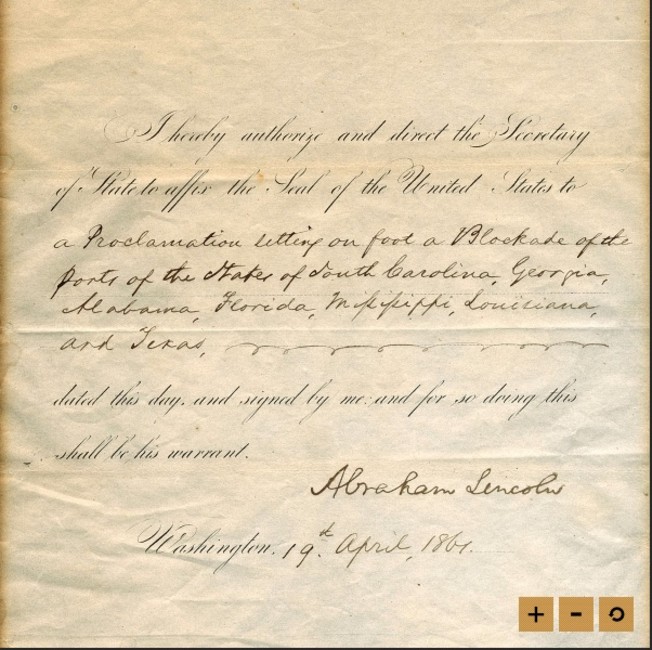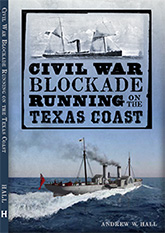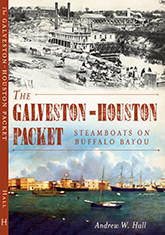The Original Blockade Order


Today, Sunday, is the 154th anniversary of Lincoln’s Proclamation 81: Declaring a Blockade of Ports in Rebellious States. As I discuss in the blockade book, this event was one of a series of actions and reactions that expanded the conflict between the national government in Washington and that of the seceded southern states. The blockade order was, most directly, a response to Jefferson Davis’ call on April 17 for privateers to obtain Confederate letters of marque to attack U.S. shipping. Privateering was well understood among Western nations as a war act, and in fact it had been outlawed by the major European powers by the 1856 Paris Declaration, declared the practice to be illegal and amounting to piracy. The United States had not signed that treaty, but nonetheless observed its provisions on privateering and did not issue letters of marque.
One thing I found odd, though, was that Proclamation 81, while given by order of the president, was actually signed by William Seward, the Secretary of State, who had been the administration’s point man on discussing the possibility of a blockade with the European powers. Where is Lincoln’s directive in this?
Then last week Josh Marshall, publisher of Talking Points Memo, did a blog post on the exponential rise in the price of historic documents, along with a discussion of the value of the documents themselves, versus the information contained in them. Among the examples he found online was, sure enough, Lincoln’s written order to Seward to promulgate the blockade decree (above).
It’s interesting to see the real document, which Josh says “is basically the document you could argue began the Civil War.” I’m not sure I’d go that far, but it’s a notable piece nonetheless, and apparently for sale somewhere with an asking price of $900,000. Not in my budget this month, I’m afraid, but interesting nonetheless.
_________






I’ve never been a big fan of historic artifices and documents being in private collections, but I understand how the market works and the lure of money.
Golly! How is this not a US govt document in the archives? Is it not to be considered stolen?
Fair question. A lot of archival stuff goes missing and ends up on the private market. I’m not even sure who’s selling this one, so I have no idea of the provenance.